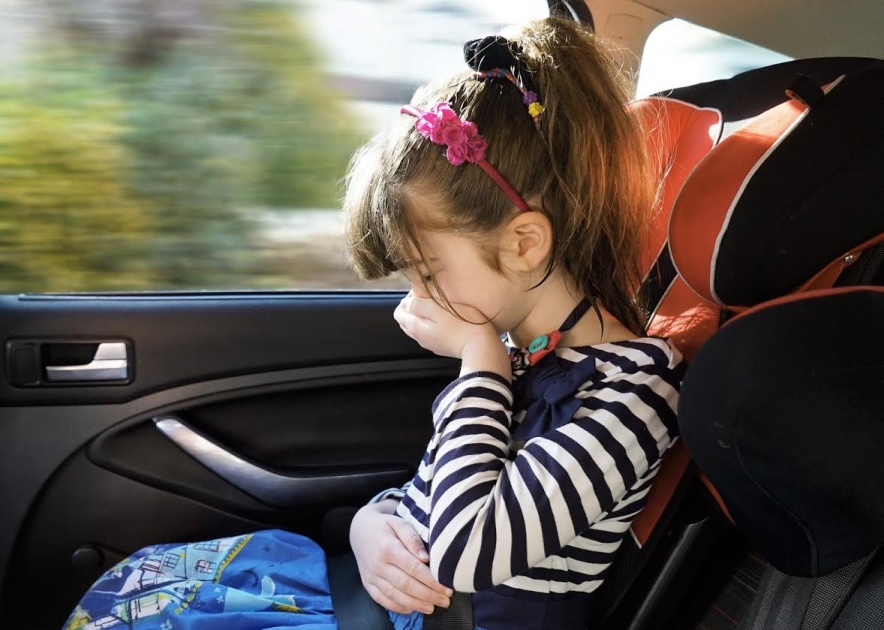
Car Sickness Research to Put Brakes on Family Road Trip Curse That Even Affects the Pet Goldfish
Guaranteed to strike fear into any parent, the phrase “I feel sick!” will be dreaded and chorused in cars across the Middle East on any family road trip.
Stop-start traffic and winding roads inevitably worsen a condition that afflicts two-thirds of us at some point, is most prevalent in passengers, especially children and teenagers, and is made worse by sitting in the back, head down playing video games or watching movies.
In new research carried out by Ford, with the help of motion sickness experts, passengers who stared at screens for the duration of a short journey fell ill after an average of just 10 minutes. And those were all grown-ups.
“Car sickness can turn an eagerly awaited family trip into a nightmare, with mum and dad nervously looking over their shoulders and fearing the worst,” said Eike Schmidt, research engineer at the Ford Research and Innovation Centre, in Aachen, Germany. “Comfort is a huge focus for the way we design the cars of the future – and we want to do everything we can to reduce car sickness.”
Yawning and perspiring are warning signs for a condition that is caused by mismatches between signals the brain receives from the eyes and from the organs of balance, in the ear. Babies don’t get car sick. This only comes when we start walking. Pets are affected though, and incredibly, even goldfish suffer from motion sickness, a phenomenon observed by sailors.
“Car sickness is a complex problem. It is a natural reaction to an unnatural stimulus that cannot be cured as such. But we can look to alleviate the symptoms,” said Prof. Dr. Jelte Bos, of TNO, Perceptual and Cognitive Systems, Soesterberg, in the Netherlands.
In the initial testing it was found that when screens were mounted higher, and the road ahead could be seen on either side, volunteers were less likely to feel sick. Further experiments will explore alternative ways that journeys could be displayed in the cabin so
that unseeing passengers can be warned of events such as twisty roads or hump backed bridges.
“For many drivers who think their child has a problem with car sickness it might simply be that their child has a problem with their driving,” added Prof. Bos, who also holds a chair in motion perception at Vrije Universiteit, Amsterdam, and has worked on a device that shows when behaviour behind the wheel could affect sickness-prone passengers. “Adopting a smoother driving style goes a long way towards reducing feelings of nausea – and it reduces fuel costs too.”
Here are some ways that the professor suggests car sickness can
be eased:
• Move to the middle in the back seats, or preferably the front, to see the road ahead
• Drive smoothly and where possible avoid sudden braking, harsh acceleration, potholes
• Distract sufferers – even a family sing along could help
• Drink cola, eat ginger biscuits, but avoid coffee
• Use a pillow or head support to keep your head as still as possible
• Operate air-con to keep fresh air circulating



























